Film-maker aims to give us 100 reasons to love Birmingham
- Published
Steve Rainbow's film sets out to prove there are 100 reasons to love Birmingham
A Birmingham film-maker is on a one-man mission to re-educate the city's youngsters about their heritage.
Steve Rainbow, from Acocks Green, whose films have been shown at the Edinburgh Film Festival, has said he is "annoyed" at how the city is stereotyped.
"People from Birmingham are quite self-deprecating. In the media that can mean we get portrayed as stupid," he said.
He hopes his film, More Canals Than Venice, which includes 100 facts about the city, will raise its profile.
'Got on my nerves'
The film includes the well-known - and often disputed - piece of trivia commonly dug out when someone mentions Birmingham - it has more canals than Venice.
"If you're from Birmingham, you'll have heard the line that it's got more canals than Venice," he said.
"It got on my nerves because I know there is a lot more to the city than that.
"People simply don't know what great things Birmingham has done and I think they should."
Mr Rainbow, who presents the not-for-profit film, external, plans to distribute it to every secondary school in the city.
He described the film, which was made in partnership with Film Birmingham and the Birmingham Civic Society, as "a labour of love", which took him about 12 months to complete.
"I'm trying to make children and adults aware of how important Birmingham's role has been in British life," he said.
He added he hoped some of the city's libraries might also screen the film.
"I've already had a great response from people who have seen the film online," he said.
Here are some of the lesser-known nuggets about Birmingham that the film includes:
Was Thomas a Brummie?
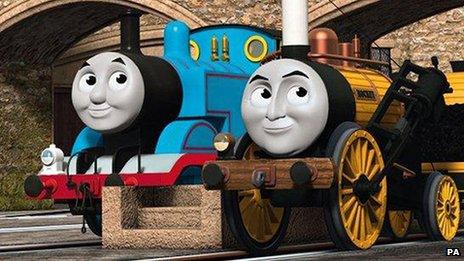
Did you know the Reverend Wilbert Awdry wrote some of the Thomas the Tank Engine books at St. Nicholas' Church in Kings Norton, where he worked as a curate?
He grew up at Box in Wiltshire, and is supposed to have got the idea of engines talking ("I CAN do it. I WILL do it....") from the sound as they puffed up the incline on the Great Western line nearby.
He worked in Birmingham from 1940 to 1946.
A chocolate heaven
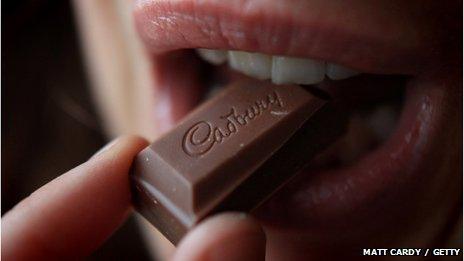
Within Birmingham lies the "village" of Bournville, which was built by the Cadbury family for the chocolate factory's workers.
It contains no pubs because the family were Quakers.
The company was founded in 1824 by John Cadbury and, by 1930, had become the 24th largest manufacturing firm in Britain.
Rita McLean, former head of museums and heritage at Birmingham Museums, said: "The Cadbury family made a fortune from chocolate., external
"Beatrice Cadbury inherited a sizeable amount. But in the 1920s, she turned her back on the opulent lifestyle and gave her shares to the workers at the Bournville factory."
City of sleuths

The creator of Sherlock Holmes, Sir Arthur Conan Doyle lived and worked in Aston between 1878 and 1881.
Historian Ben Waddington said: "Birmingham may not be the first city you associate with Sir Arthur Conan Doyle or his creation Sherlock Holmes.
"But Conan Doyle was working as a chemist in the city while studying at the University of Edinburgh.
"In the short story, The Adventure of the Stockbroker's Clerk, Sherlock Holmes and Dr Watson come to Birmingham to investigate an office at 126B Corporation Street.
"Conan Doyle's earliest mysteries were written while he lived in the city and a lot of Birmingham names crop up in the stories, including Baskerville."
Oh, I say

Mr Rainbow says modern lawn tennis was invented in Edgbaston by Major Harry Gem, a solicitor and keen sportsman, and his friend Augurio Perera in about 1865.
They played the game on Perera's croquet lawn.
One of the oldest tennis clubs in the world is located nearby.
It is called the Edgbaston Archery and Lawn Tennis Society.
A point to prove?
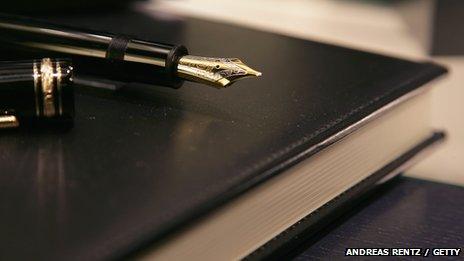
According to the film, in 1875 three quarters of the world wrote using pen nibs made in Birmingham.
During the industry's heyday, there were more than 100 companies manufacturing pens in the city.
However, by the end of the 19th Century, the number of manufacturers had declined to just 12.
And in the following century, Laslo Biro's ballpoint pen invention, in 1938, sounded the death knell for the mass production of traditional pen nibs.
Motor city
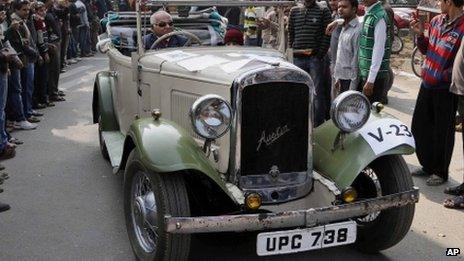
One of the UK's first petrol-driven cars was built in Birmingham by engineer Frederick Lanchester while he was working in the city, said Mr Rainbow.
Herbert Austin famously founded a factory at Longbridge.
It made several classic models, external, including the Austin Seven and the Mini.
By the 1950s, the site employed more than 20,000 people and produced nearly 200,000 vehicles a year.
Plastic fantastic

Alexander Parkes was born in Birmingham in 1813.
Parkes was a chemist and inventor who discovered several new processes, such as cold vulcanisation, a means of waterproofing fabrics.
In 1856, he made a flexible material called Parkesine, which is widely viewed as the first version of plastic.
A city of romance
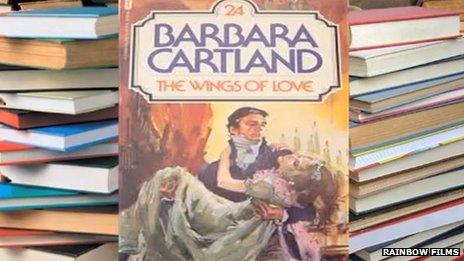
Prolific romance novelist Dame Barbara Cartland was born in Edgbaston in 1901.
She died at the age of 98, having written more than 700 books, including titles such as A Dangerous Disguise and The Enchanted Moment.
Her Who's Who entry claims she achieved sales of 750 million, although some dispute the figure.
Mr Rainbow said she holds the Guinness World Record for the most novels written in a single year.
The author was the step-grandmother of Diana, Princess of Wales.
Steaming ahead
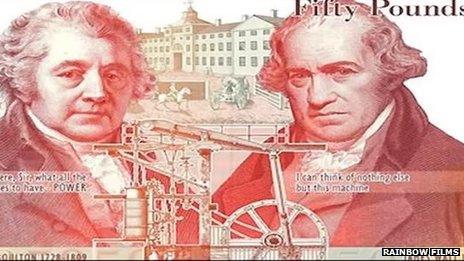
Famous industrialist Matthew Boulton was born in Birmingham in 1728 and went on to open the Soho Manufactory, which many see as the first factory of its kind.
Oliver Buckley, curator manager of Soho House, Boulton's former home, said: "Matthew Boulton was a Birmingham boy, who built the Soho Manufactory in 1765.
"It was a massive factory. Nobody had thought to manufacture on that scale before."
Many of Boulton's achievements were in partnership with James Watt.
"Their steam partnership was one of the great powerhouses of the industrial revolution," added Mr Buckley.
- Published20 July 2013